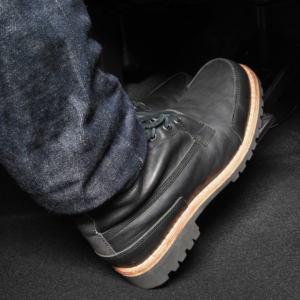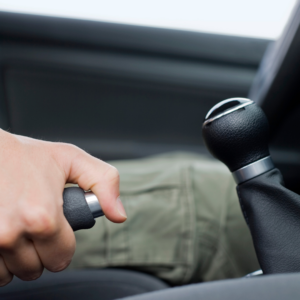What to Do if Your Brakes Fail on the Highway
 Many of us get into our vehicles daily or multiple times a day and shift into a sort of auto-pilot when we get behind the steering wheel. Our daily commutes are mundane, making falling into a hypnotic state easy. But what happens when the lull is broken, and you realize that the usually slow push of your brake pedal isn’t doing anything, and before you know it, you’re in a car accident?
Many of us get into our vehicles daily or multiple times a day and shift into a sort of auto-pilot when we get behind the steering wheel. Our daily commutes are mundane, making falling into a hypnotic state easy. But what happens when the lull is broken, and you realize that the usually slow push of your brake pedal isn’t doing anything, and before you know it, you’re in a car accident?
If you experience brake failure on the highway, you should keep a few things in mind to keep yourself and other drivers safe.
What to Do if Your Brakes Fail While Driving
Nothing is scarier than realizing that your brake pedals are not working. Instead of slowing down, you are moving closer and closer to another vehicle, pedestrian, or highway guard rails.
Crash Statistics from the National Highway Transportation Safety Administration (NHTSA) suggest that about 22% of vehicle-related crashes were due to brake issues. While many of us hope we never face this situation, knowing what to do can be lifesaving.
Take Your Foot Off the Gas Pedal
Once you realize your brakes are not working, you must take your foot off the gas pedal. You can try to use the brakes again but do not slam your foot on the brake in the hope that it will work. Instead, apply firm pressure to see if your total braking system has failed or if you have some control left. If you have some control, pump your brakes hard and fast to engage the remaining braking system.
Knowing the type of braking system your car has will be critical. Antilock braking systems require you to push the brake down and then pump it if the system has failed. In dual braking systems, all or only part of the brakes may fail, meaning you may still have rear or front brakes.
For example, in dual systems, your car’s brakes may cause the rear to lock up and fail, but by having the front brakes still engaged, you may be able to control the vehicle until you can get to safety.
Understanding your car’s power steering and braking systems will help you drive defensively if your brakes fail on the highway.
Turn on Your Hazard Lights
When you realize your brakes are not working, turn on your hazard warning lights. This will help alert other drivers that you are in distress. If you are approaching other vehicles, honk your horn to signal them.
Downshift Slowly
If you can, slowly downshift to a lower gear, which can slow the engine down. If you are driving a manual car, slowly work your way down the gears. If you have an automatic transmission, take your foot off the accelerator.
Some modern vehicles with automatic transmissions may allow manual driving. Review your car owner’s manual to learn how to shift from automatic to manual transmission. Some cars have paddle shifters on the steering wheel, while others can just be shifted down to lower gears.
Apply Your Emergency Brakes Cautiously
Your emergency brake will not stop your car immediately but will help you slow down. Engage the emergency brake slowly to maintain control of your vehicle.
Slowly Steer Your Car to the Roadside
Once you have slowed your vehicle down, get off the road or highway and get to a safe place to call for help. Be mindful of other drivers, and do not forget to use your turn signals to avoid being hit.
Engage your parking brake if you can, but if it does not bring the vehicle to a complete stop, look for other ways to stop it safely. Once completely stopped, turn off your car and signal for help. Do not turn off the car until your vehicle has completely stopped.
Keep your hazard lights on, and do not leave the car if it is unsafe. If it is unsafe to stay in the vehicle, find somewhere you can go until help arrives.
What You Should NOT Do When Your Brakes Fail
Knowing what to do if your brakes fail while driving can be critical to your safety. Knowing what not to do in the case of a vehicle malfunction can be just as important.
 Don’t Panic
Don’t Panic
Though it may be easier said than done, it is important not to panic if your brakes fail while driving. You are more likely to get into an accident if you suddenly move your vehicle.
Remain calm, put on your hazard lights, and check your surroundings to determine where you will be safe to slowly shift down and move off the roadways.
Do Not Turn Off Your Car
Whatever you do, do not turn off your car until it has come to a complete stop, as you will not be able to control it once it is off, and you are more likely to skid because of it.
Don’t Downshift Too Fast
Down shifting too fast can also cause you to lose control of your vehicle. Instead, slowly work your way down to 1st gear until you can come to a slow, complete stop.
Do Not Turn on the Emergency Brake Too Quickly
You may think the emergency brake will help you come to a slow, complete stop, but the opposite is true. If you engage the emergency brake too fast, you will skid, resulting in a lack of control and increasing your chances of an accident.
What Causes Brake Failure?
There are several reasons why your brakes could fail, but some are more likely to occur than others.
- Improper maintenance: You, as the vehicle owner, are responsible for maintaining your vehicle. Be sure to check your brake pads, as they can wear over time, especially if you drive often.
- Damaged rotor disks: If your car’s rotor disks become damaged or scored, it can decrease the life of your brakes, causing issues for your braking systems.
- Leaking brake fluid or hydraulic fluid: If you leak brake fluid or hydraulic fluid slowly, it can become difficult to brake. You should ensure the brake fluid pressure is correct if you notice it.
- Driving in mud or high water: Many people don’t realize that mud and water can act as lubricants on brakes, making them stop working. If you have driven through these adverse weather conditions, gently tap your brakes to reestablish some friction.
- Faulty manufacturing: Sometimes, brake failure is a direct result of faulty manufacturing. If the brakes or vehicle manufacturer is aware of the issues and continues to use or sell these defective brakes, they may be held liable if your brake failure causes an accident or injury.
If brake failure has placed you in a dangerous situation, causing you to suffer injury in a head-on collision or other automobile accident, Munley Law can guide you through the legal process to secure maximum compensation for your medical bills, lost wages, and property damage.
Legal Considerations When Your Brakes Fail
If your brakes fail, causing a car accident, there are legal considerations you must take into account. Because of Pennsylvania’s comparative negligence laws, even if you are partially at fault for an accident, you may still have options for financial recovery if you are less than 50 percent responsible for the accident.
If your brake failure was due to faulty parts and not because of bad maintenance, you might be able to establish that the part or car manufacturer is responsible for the wreck. Or, if you recently had your brakes serviced and still were in an accident because of brake failure, the mechanic may be held liable for the accident due to improper maintenance.
Getting into a car accident is stressful, but when it’s due to brake failure on your vehicle, you may fear you do not have options for financial recovery. Munley Law can help.
Hurt in a Car Accident Due to Brake Failure? Call Munley Law.
If you or a loved one were involved in a car accident due to brake failure, you may have options for financial recovery. Under product liability laws, you may be able to sue the vehicle manufacturer for the faulty parts which caused your accident.
At Munley Law, we represent car accident victims and their families in complex cases and can help you through the legal process. With over 60 years of experience in auto accident litigation, we’ll work diligently to ensure you get the compensation you need for your medical expenses, lost wages, and property damage.
Call the brake failure attorneys of Munley Law today for a no-obligation, free consultation.
Posted in Car Accidents.
Tagged Hazard Negligence









